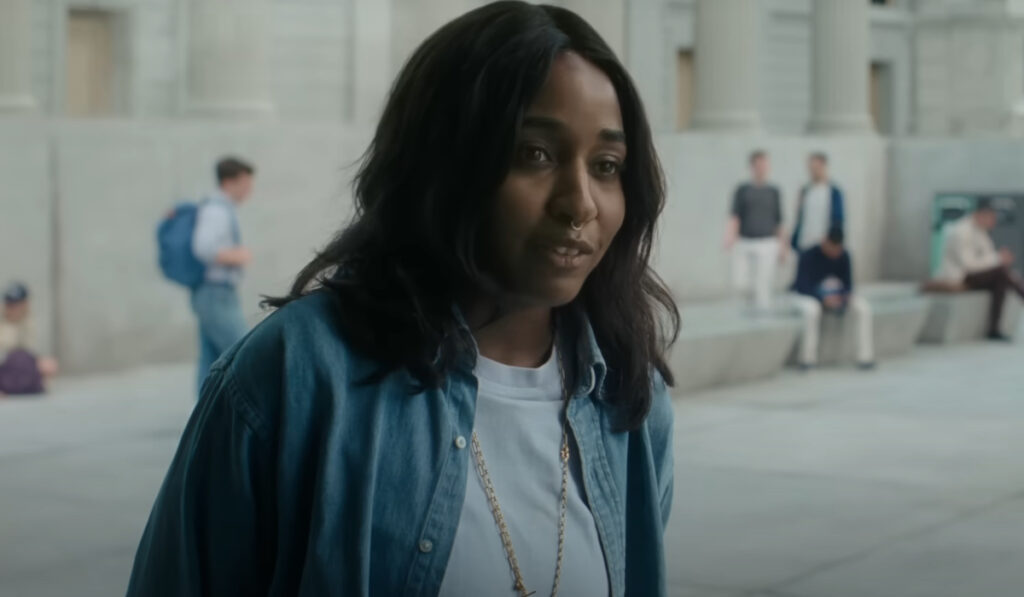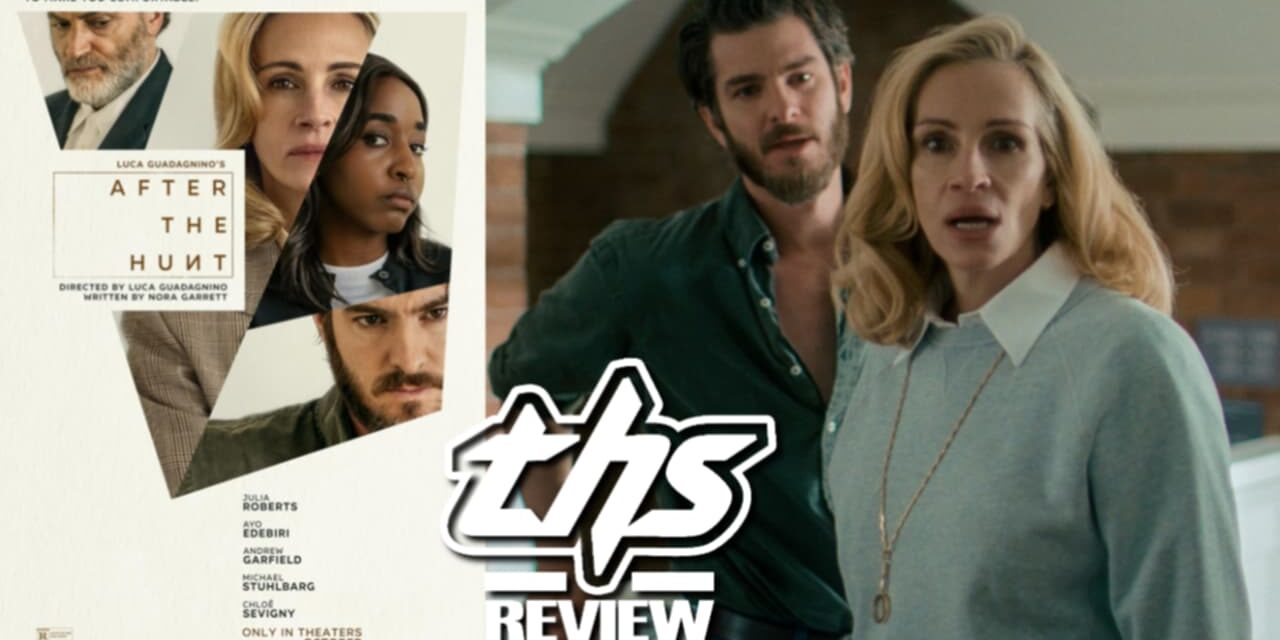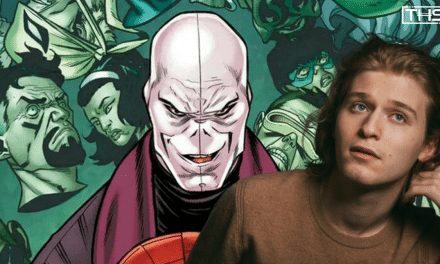Luca Guadagnino’s body of work looks like a roller coaster when you chart the genres involved. Everything from horror (Suspiria) to biopics (Queer) has seen the Italian filmmaker operating on a broad spectrum of tone – always leaving his mark in one way or another. After the Hunt is no exception, as Guadagnino dissects the world of academia with a drama that’s part soap opera and part philosophical meditation.
The picture occupies the more grounded, restrained part of the spectrum for the Call Me by Your Name icon, and is mostly centered on a couple of eventful days in September 2019. With professors Alma Olsson (Julia Roberts) and Hank Gibson (Andrew Garfield) engaged in a friendly tenure battle, everything changes after student Maggie Resnick (Ayo Edibiri) accuses the latter of sexual assault.
This action is the catalyst for After the Hunt’s restrained yet soapy drama. While the rhythm of the story is a bit unpredictable towards the end, the character-driven twists make for a movie that’s bound to stoke some conversations in its wake.
After The Hunt Thrives With An Impressive Cast
I mean what I’m about to say as a compliment: but I haven’t seen Julia Roberts, Andrew Garfield, and Ayo Edebiri as characters this unlikable in a while. Of course, that judgment is a bit subjective, as After the Hunt’s main triangle of personalities are open for interpretation. What isn’t ambiguous is the fact that our three featured actors are all equally game for the weighty task, and the dialogue that runs the gamut from vulnerability to venomous spite.
What’s more, Luca Guadagnino has two ringers in the supporting cast of After the Hunt: Michael Stuhlbarg and Chloe Sevigny. Both are much-needed sources of humor, especially Sevigny, who owns her standout scene from the film with music criticism that provides a relatable laugh. Meanwhile, Stuhlbarg, playing the neglected husband to Julia Roberts’ firebrand academic, exhibits his own brand of lovable goofiness; while also dipping back into the well of bittersweetness that earned him an Oscar nomination for Call Me by Your Name.

Writer Nora Garrett’s Script Is Captivating, Despite One Too Many Endings
Having an exemplary cast helps justify the various tonal shifts in After the Hunt’s mysterious tale. That’s a credit to the efforts of first-time screenwriter Nora Garrett, who deftly navigates the various narrative waters her players must swim through. With scenes of dialogue that recall the focus and energy of Aaron Sorkin, Garrett’s tale of problematic people presents the scenario at hand rather evenly.
That’s particularly important when noting that the featured figures in After the Hunt represent three unique generations of cultural viewpoints. This offers the audience a variety of entry points into how even the allegations of sexual misconduct are processed. It adds up to a clash of ideals that don’t abide by clearly drawn borders of right and wrong, which lends much humanity to what could be a cut-and-dry story.
What could be considered the major stumbling block for Nora Garrett’s story is how the third act seems to contain three different points where, After the Hunt could have called off the dogs. While there’s no stone left unturned, it’s a choice that audiences may find a bit odd upon first viewing. Even I admit that I was a little thrown, but I’m open to a second viewing revealing this movie’s true tempo.

A Subtle Riff On Cancel Culture, After The Hunt Will Turn Heads
I may be reading a bit too much into After the Hunt’s stylistic choices, but there’s two choices that potentially add a truly wild layer to the film’s presentation. Flanked by opening and closing title cards that use the font Windsor Light Condensed, it appears that Luca Guadagnino is invoking the spirit of writer/director Woody Allen’s work. That alone would be a powerful statement, as this picture feels like a close cousin to Crimes and Misdemeanors – complete with scenes of classical philosophical musings.
That being said, there’s also a third act cue from Trent Reznor and Atticus Ross’ musical score that sounds like it’d be at home in Roman Polanski’s Chinatown. In my mind, both of those choices signal that the Challengers director is digging into the subject of cancel culture by invoking two of its most infamous real-life faces as influences. Whether I’m right or wrong, After the Hunt is a drama that never fails to hold your attention – even in the moments where its laser focus veers off the beaten path.
For more Reviews, make sure to check back to That Hashtag Show.


![Queen Charlotte: A Bridgerton Story is a Must Watch! [REVIEW]](http://18.211.146.234/wp-content/uploads/2023/04/project_20230427_1019266-01-440x264.png)


